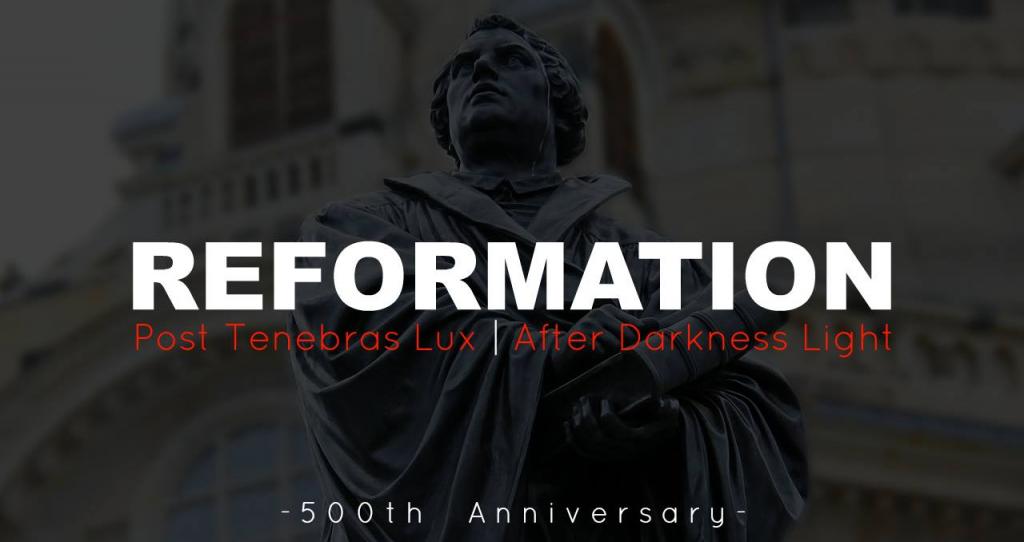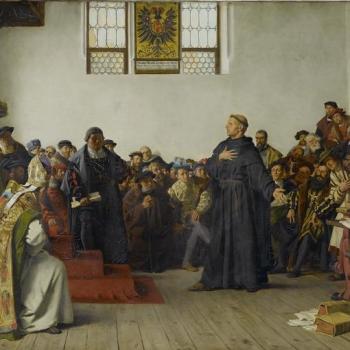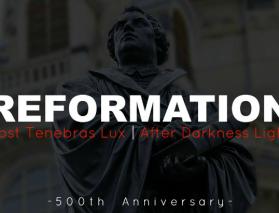Introduction
Growing up in the bible-belt, I had no cultural resistance to the doctrine of Sola Scriptura; it seemed a natural truth for any professing Christian. We know God through His Word, His Word is true, and His Word is everywhere. If you were to visit my hometown, you would find bible verses on billboards, cars, and yard ornaments. Some business owners even use it as a marketing tool to help prospective customers know their establishment is ethical and trustworthy – which stirs up other questions on ethics; but, we’ll save those for another day.
Because of my predisposition to the doctrine of Sola Scriptura, I was largely unprepared when a family member converted to Roman Catholicism. I was faced with questions on “modes of transmissions” and differing relationships between the church and sacred scripture. I was confronted on the economy of Protestantism; namely, that the use of denominations is bad fruit from a wrongfully inspirited Reformation. Then, there was the number – 30,000 by some estimates. The immense number of Protestant denominations was upheld as forensic evidence of a deep theological and ecclesiastical suicide. I feared I had been mislead my entire life.
At the core of these questions and issues is Sola Scriptura, a formal principle of most Protestant denominations – one of the 5 solas of the Reformation and a beautiful doctrine to all who hold it. But, is Sola Scriptura nothing more than a “blueprint for anarchy” and division?
Defining Sola Scriptura
Before going further, let’s briefly define the term. Sola Scriptura states that the Bible is the supreme authority in all spiritual matters, and that the pages of Holy Scripture contain all the truth we need for salvation.
The Westminster Confession of Faith puts it like this:
“The whole counsel of God, concerning all things necessary for his own glory, man’s salvation, faith, and life, is either expressly set down in scripture, or by good and necessary consequence may be deduced from scripture: unto which nothing at any time is to be added, whether by new revelations of the Spirit, or traditions of men.”
I’ve seen confusion on both sides of the issue when the doctrine is overstated and/or over-applied; this is occasionally referred to as “Solo Scriptura”. Sola Scriptura does not deny other forms of instruction or authorities (such as the church, devotionals, testimonies, teachings, etc.). These can contain a great wealth of truth and insight for believers. The church is the “pillar and foundation of truth.” Still, as valuable as some of these authorities may be, they are subject to the word of God as the final and ultimate authority.
While not completely within the scope of this article, I do want to briefly point out that Sola Scriptura does have a scriptural foundation. Consider 2 Timothy 3:16-17, “All Scripture is breathed out by God and profitable for teaching, for reproof, for correction, and for training in righteousness, that the man of God may be complete, equipped for every good work.” Paul is clear: scripture is sufficient to make the man of God “complete”.
The Providence of Division and Doctrine
 While unity should always the goal, the truth is that’s not the reality of the world we live in right now. Nor was it the reality of God’s people before Christ. Historically speaking, God has always allowed different factions and divisions within His people. Think back to Judaism. Here we have The Pharisees, Sadducees, Samaritans, Zealots, Jewish Gnostics, Jewish Platonists, and so on. This economy was understood to be useful and God honoring – each group with their own roles and distinctives.
While unity should always the goal, the truth is that’s not the reality of the world we live in right now. Nor was it the reality of God’s people before Christ. Historically speaking, God has always allowed different factions and divisions within His people. Think back to Judaism. Here we have The Pharisees, Sadducees, Samaritans, Zealots, Jewish Gnostics, Jewish Platonists, and so on. This economy was understood to be useful and God honoring – each group with their own roles and distinctives.
The unifying element of these groups was not a central human figure head, as Rome boasts. The article that kept God’s people united throughout covenants, kings, and exiles was God’s law; His Word. While circumstances around the nation of Israel were always in flux, God’s law remained a lighthouse for all to follow. So why is it such a stretch to conclude that God employs a similar economy today?
One might counter with an argue that says roughly: The New Covenant is a better covenant and Jesus prayed for us to be one (John 17); therefore, divisions are sinful. This a fair point. However, we can’t know or presume to understand God’s timing for unifying His church. To do so assumes an unrealized eschatological position – clearly, that’s not today. God hasn’t prevented the spreading of the Protestant movement; it’s flourishing! Protestant churches are sprouting up all over the world. While all Christians should pursue unity within the body of Christ, I also realize that God is still proactively gathering in His people (2 Peter 3:9); the harvest is not complete.
A logical counter argument to this might be to bring up alternative religious groups, for example Mormons or Jehovah Witnesses. God allows these groups to continue. Should we view them the same? I suppose you can if you want to include organizations that deny Christianity’s foundational Creeds.
Providentially, much of the writing of church fathers was focused on exposing heresies and defining the core doctrines of faith. Church fathers worked tirelessly in the first few centuries to craft an understanding of what Christianity is. The church developed creeds that give us clear boundaries for Christianity to exist within. While there may be some doctrinal differences throughout the body of Christ, these boundary lines help us to recognize genuine Christianity and its required elements.
While doctrinal issues of the Reformation did cause division, a careful study of Church History would show that nationalism and liberalism played a major part as well. Many denominations coming out of the Reformation were formed due to geopolitical rule (ie. Luther and German Princes). The denominations that were created often found agreement on all creedal issues of the faith.
Additionally, many of the modern denominations exist as they have adopted liberalism or relativism. They have abandoned the faith. This has little to do with the Sola Scriptura. The bible does not allow for much of what is done in the name of progressivism. Even parts of the Catholic church are listening to the siren song if liberalism; some even fear a schism.
A compelling article released last year by The National Catholic Register called Why We Need to Stop Saying That There Are 33,000 Protestant Denominations points out how absurd this number truly is. Scott Eric Alt writes,
“However strong the temptation some may have to characterize anything not Catholic or Orthodox as “Protestant,’ you can’t do that. All that tells Protestant apologists is that you don’t know what Protestantism is, or what its distinctives are—and they would be right. And why would they take anything you say seriously after that? If you don’t know what Protestantism is, who are you to be talking about its errors? Not only are Mormons, Jehovah’s Witnesses, Oneness Pentecostals, Unitarians, Prosperity Gospel believers not Protestant, they are not even Christian; they adhere to a false Christology. Protestants and Catholics are in agreement about who Christ is; these other groups have other ideas.”
When surveying the divisions within modern Protestantism, we must also take in account geopolitical lines, liberalism, and creedal theology. These all play an important role in helping us better understand denominational lines, and more importantly, what is truly Christian.
Conclusion
To conclude, let’s look to the New Testament. Paul’s words might surprise you. 1 Corinthians 11-17:19 reads, “But in the following instructions I do not commend you, because when you come together it is not for the better but for the worse. For, in the first place, when you come together as a church, I hear that there are divisions among you. And I believe it in part, for there must be factions among you in order that those who are genuine among you may be recognized.” There are productive reasons for allowing factions to exist within the body of Christ – it helps us identify who is a believer and who isn’t.
Once more, this isn’t ideal – we should always pursue unity. But God has not allowed that to happen, thus far. In its place, we have denominations of churches full of sinful people that are all subject the unchanging Word of God. It will remain the same when nations fall and progressive theologies undo themselves. It’s objective, immovable, and contains everything we need for salvation.
Other Articles In This Series:
- Reformation 500: Sola Fide and The Roman Catholic Church
- Reformation 500: Sola Fide and The Historic Protestant View
- Reformation 500: Sola Gratia to a World That Needs It
- Reformation 500: Sola Fide, The Apostle Paul and Romans 3-4
- Reformation 500: Is Sola Scriptura a Blueprint for Anarchy?












